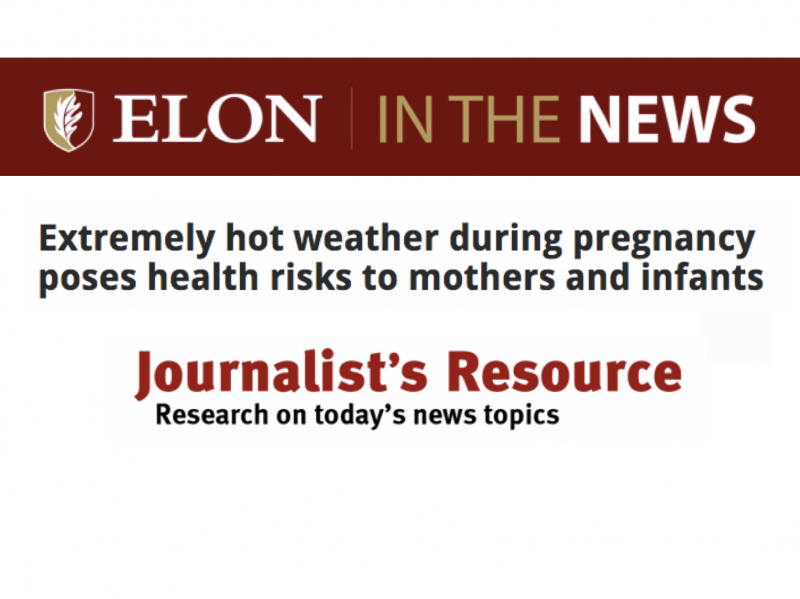Assistant Professor of Economics June Kim co-authored an article for the National Bureau of Economic Research that looked at the impacts of prenatal exposure to extreme heat on maternal and infant health.
A recent article for the National Bureau of Economic Research co-authored by Assistant Professor of Economics June Kim has been highlighted by Journalist’s Resource, a Harvard University program that puts the spotlight on new research on high-interest public policy topics.

Titled “What to Expect When it Gets Hotter,” the working paper looks at the potential health risks to pregnant women and infants when they are exposed to extremely hot temperatures during pregnancy.
Kim’s team found that extreme heat increases the likelihood of hospitalization during pregnancy and hypertension during childbirth, and puts infants at risk of dehydration at birth and being hospitalized during the first year of life. The research found that black mothers are particularly vulnerable.
“Given that extreme heat days are rising steeply in frequency and also in severity in just the next few decades, I think this sheds light on what’s going to happen to mothers’ health, and also the health disparities between black women versus white women,” Kim told Journalist’s Resource.
Kim told reporter Chloe Reichel that her own experience as a mother motivated her to undertake the project. “I had to move from Indiana to Florida in the middle of my pregnancy,” she told Reichel. “And then that led to an extreme weather change during my pregnancy period. That actually motivated this research question, personally, to me, to see whether there is any effect of extreme weather shocks during pregnancy — on my health, as well as on the infant’s health.”
Read the entire article about Kim’s research here.



